News
Health and humanitarian workers face record violence: Here are 5 reasons the world must take action
- 18 August 2024
News
UNITED NATIONS, New York – There were more than 1,500 attacks on health facilities last year. More than 280 humanitarians and at least 750 health workers and patients were killed. These numbers were racked up not on battlefields, but in hospitals, in homes, in vehicles delivering vital medical care, in spaces designed to be safe.
More health workers and patients were killed or injured in 2023 than any previous year – a grim record the world is on track to beat in 2024. Humanitarian aid workers are also facing unprecedented violence, with 172 killed so far this year. From Gaza to Myanmar, from Haiti to Ukraine, front-line workers and the people they are trying to serve are being bombed, shot, kidnapped, tortured, arrested – all while trying to do their jobs.
This rising tide of violence has largely been met with impunity and inaction. Below, we explore five reasons the world must urgently safeguard health facilities, their patients, and all those working for them.
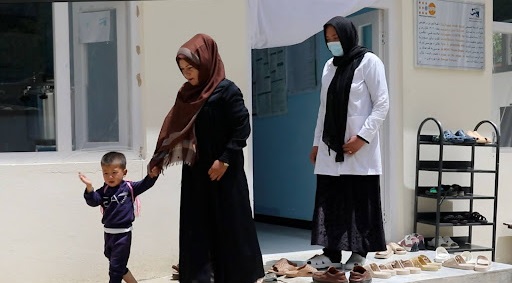
For people in conflict zones, humanitarians and front-line health workers are quite simply a lifeline – often their only one. Deliberately attacking health facilities is a direct violation of international humanitarian law and undermines the health and well-being of whole societies.
Beyond the immediate, unacceptable deaths of workers and patients, targeting health-care providers causes long-term indirect damage, especially in situations where health systems are already fragile, as medical appointments are missed, operations go unperformed and ultimately countless lives will be lost from preventable causes.
In August 2021, Mariza Ahmadi was working as a midwife at the Ahangaran Family Health House in Bamyan Province, when Afghanistan descended into chaos following the withdrawal of foreign troops from the country. Among the most affected were staff and patients at public health facilities, many of which either closed or were rendered non-functional due to the lack of health workers who could travel.
"This health centre didn't close for a single day during those times," said Ms. Ahmadi. "I was also scared, but if I left, a mother or a baby could have died, and all our efforts to prevent maternal and newborn deaths would have gone to waste.”
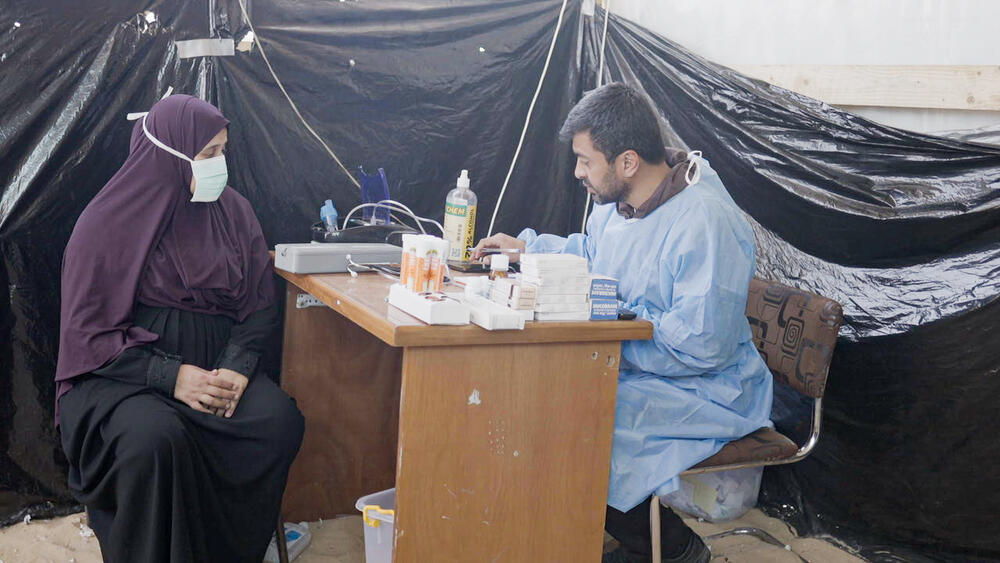
War and conflict present a unique litany of dangers for pregnant women, as the health facilities they rely on are often unable to operate, under attack or inaccessible. For health workers, getting to these same facilities means risking arrest, kidnap, injuries and, increasingly, death. Nowhere has this played out more starkly this year than in Gaza, where the health system has been all but obliterated by more than 490 armed attacks against hospitals, clinics and ambulances. Women are forced to give birth without medication, in filthy conditions, some entirely alone. Newborns are dying because their mothers are unable to attend prenatal or postnatal check-ups.
And with a fraction of critical health supplies available, illnesses can quickly turn fatal. Dr. Ragab used to work as a gynaecologist and obstetrician at the Nasser Medical Complex in southern Gaza, but after it was bombed he set up his practice in a tent at a camp for displaced people in Rafah. “There is a shortage of important medications, like Clexane or Heparin, that should be available for women and can save lives,” he told UNFPA in March. “I am supposed to provide these medications, but I can't."
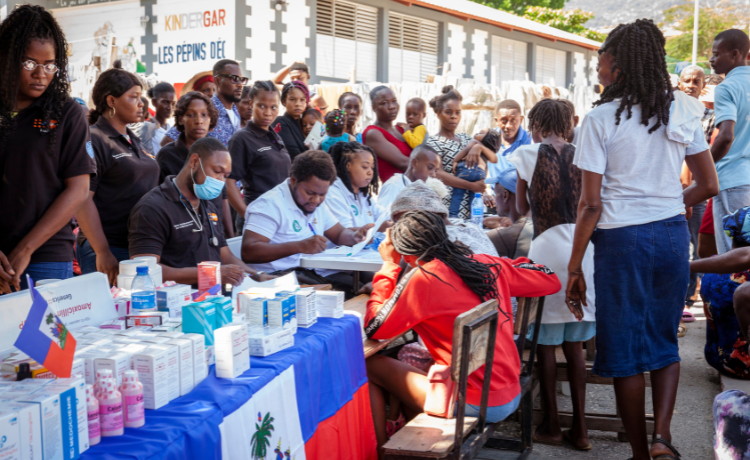
In crisis settings, gender-based violence tends to soar just as the protection mechanisms to prevent and respond to it are breaking down. In Haïti, where sexual violence is being wielded widely as a weapon by armed gangs, reports of rape rose by 50 per cent between 2022 and 2023 as the country descended into catastrophe. More than 500,000 people have now been forced to flee their homes, leaving them even more exposed to risks of violence but with little recourse to health services. Only around one quarter of rape survivors can access medical services and emergency contraception within the crucial 72-hour period, let alone seek counselling for the lasting physical and mental trauma.
With the national health system already on its knees, armed groups frequently disrupt supply routes and health facilities are under near-constant attack, looted of their equipment and even ambulances. Most have been forced to cease operating, staff are now displaced and around 40 per cent of health workers have left the country, leaving essential care scarce for most people in Port-au-Prince. Dr. Batch Jean Jumeau, president of the Haitian Society of Obstetrics and Gynaecology, described the conditions as “traumatic…people are extremely vulnerable. [...] Since the increase in gang attacks we have noticed a high rate of early pregnancy, particularly in certain [displacement] sites.”
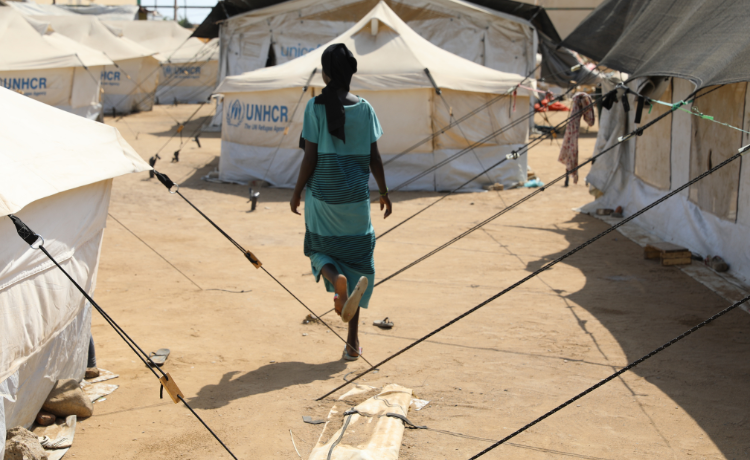
Since April 2023 there have been 88 reported attacks on health infrastructure in Sudan, and only one in four facilities in conflict zones are fully functional. Health workers have gone without pay for months and many centres have been occupied, looted or attacked. Those that remain are running out of blood, transfusion equipment, intravenous fluids and medical supplies.
Such stories are unacceptable; the world must treat them that way.
“I came to the health centre after the fighting calmed down, but I found it destroyed – there were no beds left, no equipment, no supplies,” recalled Hiba*, a doctor at the Ardamata clinic in El Geneina, in Sudan’s West Darfur State. When functioning, the clinic provides sexual and reproductive health support for some 300,000 people. But after armed groups stormed it last year, community health and aid workers committed to performing their services door to door instead. “We visited pregnant women and girls at their homes,” explained Sara*, a midwife. “However, we faced access challenges and we couldn’t handle complicated cases. For some [pregnant women], we had to deliver them in the street.”
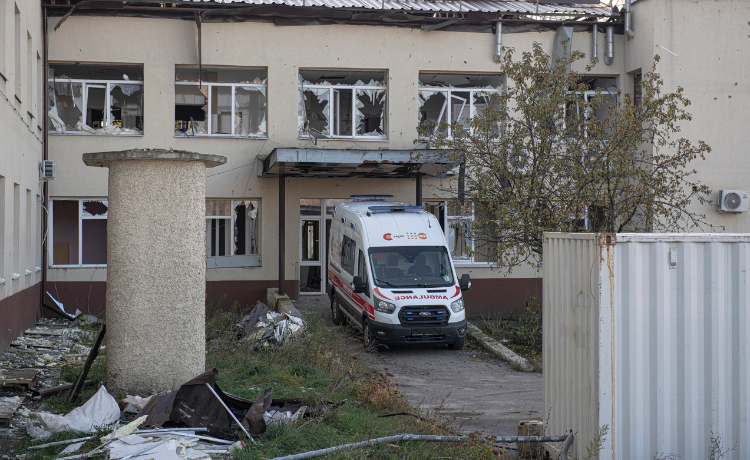
Health workers unable to go to work means a breakdown in care and survival for millions, including, or especially, people living in remote areas. For these communities, mobile health teams and ambulances can be their sole way of accessing care such as life-saving maternity services, family planning options and gender-based violence support. Yet in multiple conflicts the teams and ambulances are subjected to shootings, bombs, missile attacks, drone strikes and looting.
UNFPA mobile support teams have operated under increasing fire over the past two years, including in Ukraine. “On the way to the domestic violence shelter [in Kharkiv], a nearby factory was hit,” explained psychologist Olena Kuznietsova. “We saw smoke, there were screams. We had to descend into a nearby subway being used as a bomb shelter.”
A call to action
In 2023, UNFPA ensured sexual and reproductive health services for some 14 million women, girls and young people in crisis settings, among whom 1.4 million women were supported to give birth safely and millions sought help at over 1,000 facilities offering gender-based violence protection.
Without the infrastructure and staff to safely run these programmes, women and girls already struggling trying to survive amid violence and upheaval would be left with barely any assistance to face pregnancy complications, deal with the brutal aftermath of rape and navigate the horrors of forced marriage, endangering their lives yet further.
In a year scarred by ruthless conflicts, the world’s crises are so protracted they are at risk of being forgotten. Places where the sick, wounded and sheltering should be healing have been transformed into targets. With little accountability for those committing these crimes, this World Humanitarian Day comes with a warning for leaders to step up – and act for humanity.